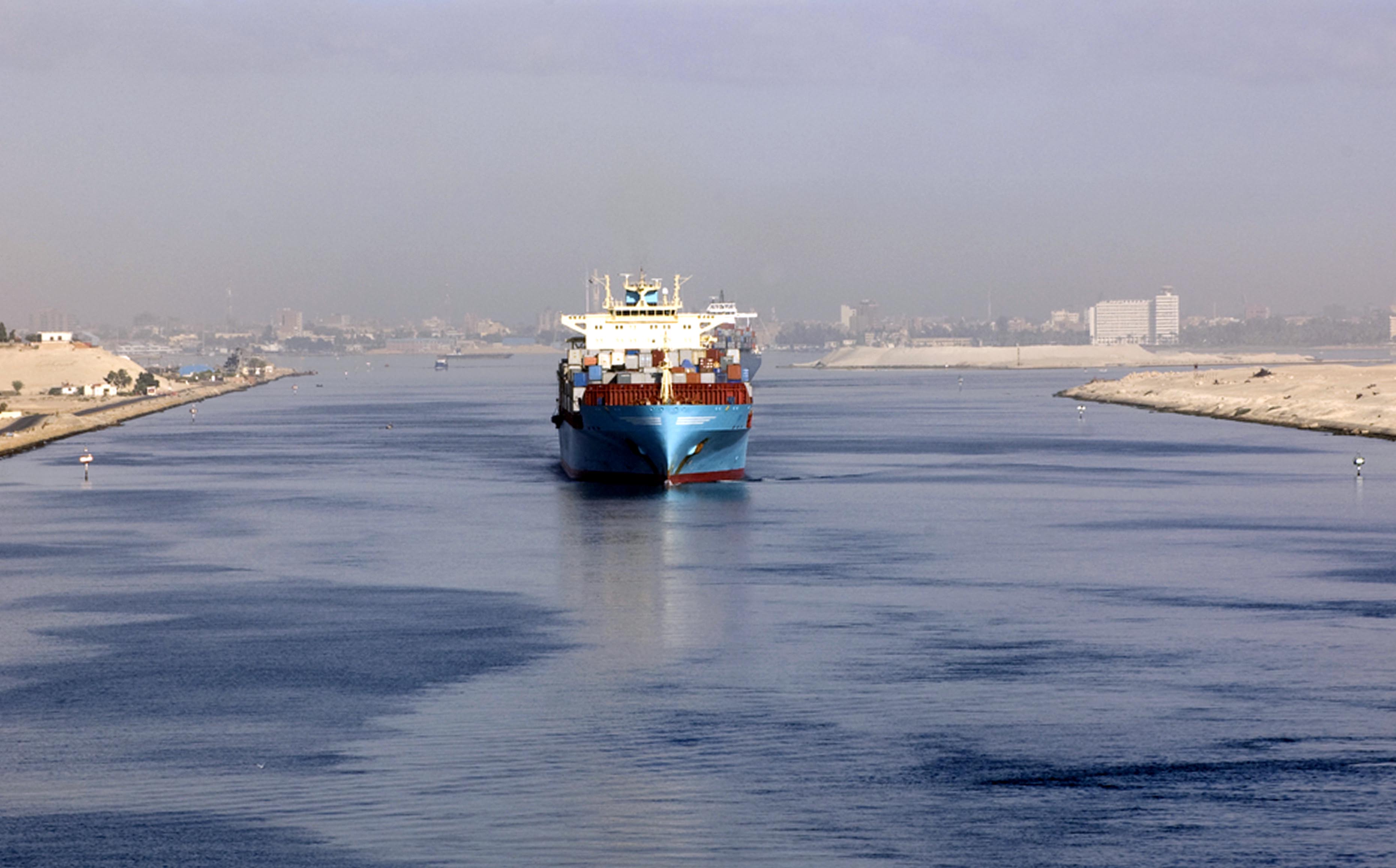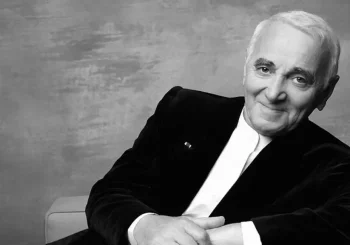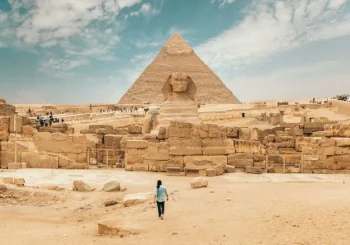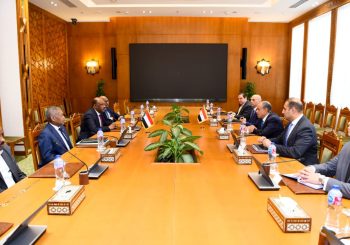Less than two weeks prior to the official inauguration of the New Suez Canal, three container ships have made it across the new waterway earlier on Saturday as a test-run, Egypt’s state news agency MENA reported.
Under the patronage of the Egyptian army and president Abdel Fattah al-Sisi, the new waterway, an $US 8 billion mega-project that has been under construction since August 2014, is scheduled to be formally opened on August 6.
“This is the first trial crossing but it will be followed by more trials,” Mohab Mameesh, the chairman of the Suez Canal Authority who led the project, told state television. “We are 99.2 percent done with everything. We should be completely done in two or three days.”
In order to avoid imposing unnecessary burdens on the impaired Egyptian economy, al-Sisi had announced in March the release of investment certificates that were available for purchase by Egyptian citizens to fund the mega-project. The idea was met with grand enthusiasm, seeing the purchase of investment certificates worth approximately $US 7.6 billion, reported CNBC Arabia.
During the Saturday test-run, the New Suez Canal welcomed the passage of the first container ship at 10 a.m. The American ship heading to Saudi Arabia from Egypt’s Port Said weighed 133,000 tonnes, while the second ship, a Danish one heading from Singapore to the United States was loaded with 95,000 tons of cargo. The third ship to make its way through the waterway was a Bahraini ship making its way from Saudi Arabia to Italy carrying a load of 77,000 tonnes.
The currently existing 145-year-old Suez Canal, which has seen the passage of around 17,100 ships in 2014, according to the Suez Canal Authority, is considered to be one of Egypt’s primary national income sources. While the old canal reaps an estimate annual revenue of $US 5 billion, the new waterway which will allow two-way passage of ships is expected to triple the figure to $US 15 billion annually by 2023.
Furthermore, the new dual Suez Canal is expected to speed up navigation, reducing the consumed time of passage from 22 hours to 11 hours, making it the world’s fastest waterway, according to Mameesh.
Given the insurgency witnessed in the Sinai Peninsula during July, which has been recurrent in the area since 2013, Saturday’s trial took place under the heavy security of helicopters and naval vessels.
Article has been edited to fix typos.







Comments (5)
The project cost was $8 Billion not million
lol I think you mean $5 billion and $15 billion… Piss poor journalism.